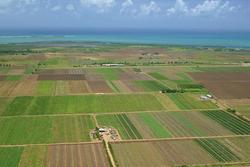Business Review | 7 July 2016
Romania agriculture outlook: The legal challenges that investors are facing
Romania agriculture outlook: The legal challenges that investors are facing
By Ovidiu Posirca
Although the local agriculture sector remains attractive to investors, there are ongoing issues with the legislation, which hampers the acquisition of farmland and the sale of crops at the best prices, according to legal experts.
“Unfortunately, companies that are looking to invest in the agriculture sector are dealing with the lack of coherent and predictable legislation, and with the excessive bureaucratization of procedures,” Adina Tataru, senior lawyer at bpv Grigorescu Stefanica, told BR.
She said the issues are most visible in the fiscal area, citing the special constructions tax in the agriculture sector, which was ditched shortly after it was adopted.
Crina Ciobanu, managing associate at law firm Suciu Popa Attorneys, added that 26 years after market liberalization, Romania can be considered to have reached a certain maturity in the agricultural business, which could also apply to the acquisition of land and agri-business.
“However, in both sectors, there is still room for development and massive investment, with Romania becoming increasingly interesting as a market for agricultural production (agribusiness, agri-industrial),” Ciobanu told BR.
Farmland remains key sector asset
Although the low price of farmland still lures investors, there are only a few large compacted surfaces of thousands of hectares and there are still historic issues with the registration of these pieces of land.
Ciobanu said that prices of agricultural land in Romania are still “at about 10 percent of the transactional level in the mature economies in Western Europe, which leaves room for price increases in the future”.
“What hinders, however, the acquisition of land is not only the fact that communism has crumbled the land into plots of several acres, while big investors are in search of large compacted surfaces (usually investors look at compact surfaces exceeding 5,000 ha – which are rarely available, if at all), but it has also created a certain degree of confusion in the applicable legislation,” said the representative of Suciu Popa Attorneys, adding that the lack of an updated cadastral documentation and registration in the land book is another obstacle to transactions.
“What we found was very difficult for foreign investors to understand, especially as they come from countries where mere proof of registration in the land book stands as proof of ownership, is the fact that certainty around title of ownership is sometimes very difficult to achieve. This is the reason why thorough due diligence of the ownership chain is always a must and sometimes reveals gaps and risks which are better known from the outset,” she added.
Tataru of bpv Grigorescu Stefanica said that the liberalization of the land market has allowed foreigners to make acquisitions, but procedures are still cumbersome and there are certain preemption rights, which could see the state itself step in to make a purchase.
Crop management challenges
Monia Dobrescu, partner at law firm Musat & Asociatii, says that the sale of crops does not raise any serious challenges from a legal perspective, but there are certain provisions that should be taken into account.
“Practical issues with the sale of crops include the constant inability of farmers to negotiate contracts and/or the constant pressure on farmers due to perishable crops. This often leads to the negotiation and signing of contracts with food suppliers at the expense of farmers, at derisory prices, which unfortunately don’t cover the required capital to continue production to certain standards, and in some cases it could even lead to a complete halt in the process,” Dobrescu told BR.
In addition, the lack of a dedicated stock exchange for agricultural products is also generating additional risks for investors looking to sell their crops.
“For instance, 2015 proved to be a very atypical year. All prices for crops decreased significantly, due to a fall in exports (with Egypt encouraging internal production), and farmers therefore experienced difficulties,” said Ciobanu of Suciu Popa Attorneys. She added that the law regarding deposit certificates, which would help players in this sector, has been blocked for more than two years.
These certificates would allow farmers to get bank financing if they deposit their crops in licensed silos. At the moment they are forced to sell their crops right after harvesting in order to secure liquidities.
The legal experts agreed that the financing and insurance of agricultural land and crops remain difficult. Some progress will be made after the cadastral works are finished. The authorities have tried to convince insurers to work with farmers by creating mutual funds, giving the investors some compensation if their crops are destroyed by extreme weather. However, the legal provisions were not that clear and some new measures are now under debate, according to Tataru of bpv Grigorescu Stefanica.
Players burdened by outdated tax provisions
The agricultural sector is still subject to certain old tax provisions which in fact hinder companies doing business in this sector.
“For example, investors organized as ‘owner’s associations’ (in Romanian ‘asociatii de proprietari’) pursuant to Law. no 36/1991 are subject to double taxation, as they must pay the income tax due by any company organized as a commercial company, following which the ‘shareholders’ of this association pay 16 percent income tax again, should they choose to receive the actual crops at the end of the year, or 5 percent dividend tax, should they opt for the cash equivalent. Moreover, VAT is applicable and payable, leading to the farmers paying almost 30 percent in tax.
Additionally, because of the Fiscal Code, subsidies are taxed in Romania, as opposed to the rest of Europe, where they are tax-free,” said Ciobanu of Suciu Popa Attorneys.














